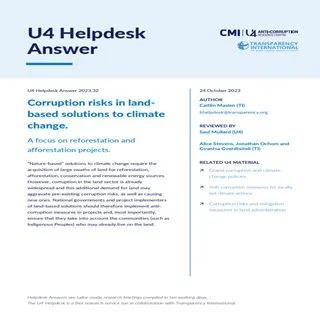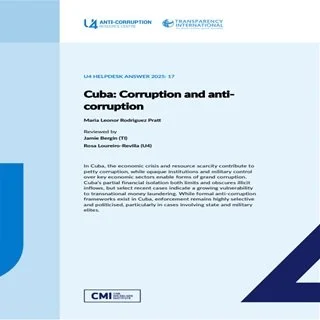By Caitlin Maslen
“Nature-based” solutions to climate change require the acquisition of large swaths of land for reforestation, afforestation, conservation and renewable energy sources. However, corruption in the land sector is already widespread and this additional demand for land may aggravate pre-existing corruption risks, as well as causing new ones. National governments and project implementers of land-based solutions should therefore implement anti-corruption measures in projects and, most importantly, ensure that they take into account the communities (such as Indigenous Peoples) who may already live on the land.
Bergen: U4 Anti-Corruption Resource Centre, Chr. Michelsen Institute. , U4 Help Desk,, 2023. 24p.















